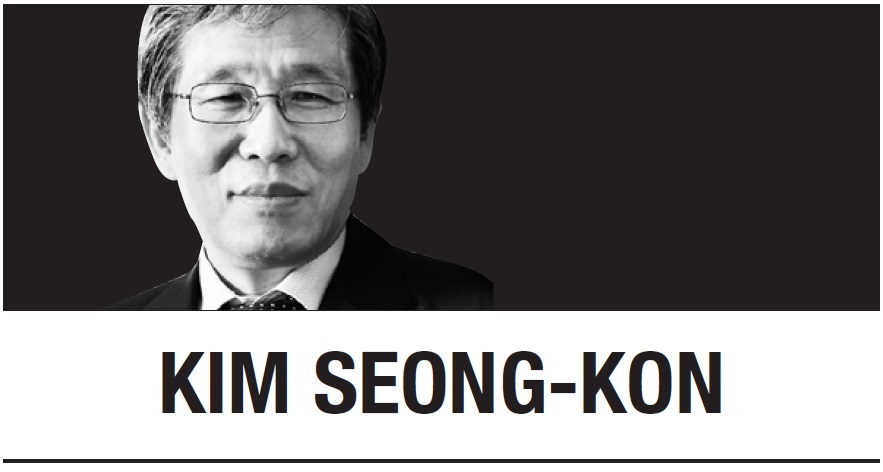
Pyrrho of Ellis, the first Greek skeptic philosopher, argued that wise men should be skeptical and thus remain calm under all circumstances. According to the Greek thinker, we should raise questions before believing something too hastily. Yet on the contrary, we are liable to become convinced of something so easily that we seldom doubt its validity. Indeed, we often do not consider the possibility that we might be manipulated by a hidden mastermind pulling the strings from behind. For this reason, Pyrrho maintained that wise men should stay calm even in times of crisis or sociopolitical turmoil, and not get swept away by collective emotions or a national frenzy instigated by wicked politicians.
The famous anecdote of “Pyrrho and the pig” illustrates the philosopher’s thesis quite well. One day, Pyrrho traveled by sea during a severe storm. Naturally, there was a great commotion on the ship, but Pyrrho kept cool. When his panicked fellow passengers asked him how he managed to remain calm in such a cutthroat environment, the great thinker pointed to a pig calmly sleeping on deck, saying a wise man should be unperturbed in any situation, like the unruffled pig.
Inspired by the above anecdote, Yi Mun-yol wrote a celebrated short story titled “Pilon’s Pig,” which superbly captured the social landscape of South Korean society when the country was a military dictatorship. In the story, in which Yi refers to the Greek skeptic as Pilon, the protagonist, named Lee, has just been honorably discharged from his military duty and rides a military train home.
On the train, Lee witnesses a series of unpleasant incidents. First he happens to encounter a man named Hong, a coward and opportunist he despises. Then another incident occurs. Suddenly, a group of Marines show up and, using threats and violence, force the Army soldiers to donate money to them. The author does not specify their identity in the story, but the translator calls them “the Marines” because such scenes between Marines and Army soldiers were not uncommon in Korea when the story was written.
While the Marines are forcibly collecting money from the meek Army soldiers, someone hiding behind the scenes begins instigating the docile soldiers to stand up against the tyranny of the extortionists. Manipulated by the demagogue, the soldiers abruptly turn into a violent mob and begin to brutally attack the outnumbered Marines. As a result, the train compartment becomes a place of violence, bloodshed and chaos justified in the name of social justice.
Sitting in the compartment, the narrator, Lee, witnesses all of this. But Hong cowardly sneaks out of the compartment and hides. When order has finally been restored, Hong reappears and brags about himself in order to justify his opportunistic attitude. The protagonist finds it repulsive and disgusting.
Undoubtedly, the military train in Yi’s story is presented as a microcosm of Korean society under iron booted rule in the 1970s and 1980s. Through the incidents he encounters in his compartment, Lee examines and exposes the problems of Korean society: the tyranny of dictators, the cowardice and obedience of the people that make tyranny possible, and the demagogues who instigate and manipulate the people from behind, so they turn into inadvertent terrorists.
At the end of the story, Yi Mun-yol brings up the anecdote of “Pyrrho and the Pig.” He writes: “Pilon was traveling by sea. The ship met a great storm in the ocean and soon there was pandemonium on the ship. Some wept, others prayed, and still others made rafts. A wise man, Pilon, wondered what action he should take, but could not think of anything. Then Pilon saw a pig sound asleep under the ship’s hold, dead to the world despite the panic onboard. In the end, Pilon did as the pig did.”
At first, people may misunderstand Pyrrho’s message, thinking that he suggests that an intellectual should not interfere in social issues but should remain indifferent. But that is not the case. In fact, his message is, “An intellectual should not be swept by collective fears, emotions and sentiments. Instead, he should be skeptical and remain calm at all times.” In our society, however, even intellectuals are easily swept by emotional outbursts and political campaigns, losing rational calmness in the meantime.
In the train compartment, the protagonist, Lee, encounters various types of problematic people who can be found in contemporary Korean society such as dictators, cowards, opportunists, hypocrites and demagogues. Lee especially criticizes demagogues, who control and manipulate naive people for political gain. Those beguiling demagogues, the masterminds of political schemes, always use the “useful idiots” for political gain.
Although Yi wrote “Pilon’s Pig” in 1980, when Korea was under the iron boots of former Army generals, the theme of the story still stands, penetrating into basically the same problematic issues contemporary Korean society is now facing. From the story of “Pyrrho and the Pig” we can learn valuable lessons for today’s Korea.
Kim Seong-kon
Kim Seong-kon is a professor emeritus of English at Seoul National University. -- Ed.




![[Weekender] Korea's traditional sauce culture gains global recognition](http://res.heraldm.com/phpwas/restmb_idxmake.php?idx=644&simg=/content/image/2024/11/21/20241121050153_0.jpg)



